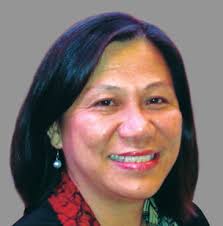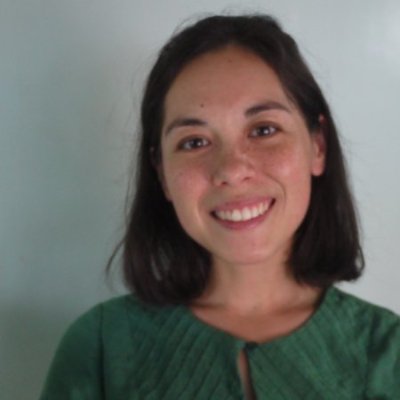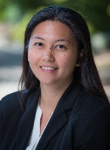 Philip Kelly, York University
Philip Kelly, York University
Philip is a Professor of Geography at York University and the Director of the York Centre for Asian Research. He grew up in England but has spent most of his adult life in Canada, aside from three years in Singapore and many visits to the Philippines. His research has examined the global dimensions of Philippine development, the experiences of Filipino-Canadian immigrants and their families, and the transnational socio-economic linkages between Canada and the Philippines. He has run several collaborative research projects, all focused on Filipino migration and transnationalism, and immigrant economic outcomes. These have included the Filipino Youth Transitions in Canada project (FYTIC), which examined intergenerational class mobility among Filipino youth in Toronto, Hamilton, Winnipeg and Vancouver; the Toronto Immigrant Employment Data Initiative (TIEDI), a project that provided data access and analysis in partnership with immigrant service organizations; and the Gabriela Transitions Survey (GATES), which examines the post-settlement experences of Live-In Caregivers in Canada.
Email: pfkelly@yorku.ca
 Leonora C. Angeles, University of British Columbia
Leonora C. Angeles, University of British Columbia
Nora Angeles has an extensive record of research and publication on community and international development, social policy, participatory planning and governance, and the politics of transnational social movements, particularly in the Philippines and Southeast Asia. She also has extensive networks in Vancouver’s Filipino community. In recent years, Angeles has addressed the implementation of alternative and participatory development frameworks at a local scale in the Philippines, especially in rural areas.
Email: nora.angeles@ubc.ca
 Lynne Milgram, Ontario College of Art and Design University
Lynne Milgram, Ontario College of Art and Design University
Lynne Milgram has an ongoing and broad-based record of research and publication focused on the Philippines, with particular attention to microfinance and gendered work in small-scale craft production. Her current work explores small-scale entrepreneurship and gendered economies in the Northern Philippines, especially around food provision, as well as the development of alternative transnational markets in second-hand clothing between Hong Kong and the Philippines. Through her detailed and long-term ethnographic work in the Northern Philippines she is playing an important role in the broader understanding and theorizing of alternative forms of market exchange, the moral dimensions of economic transactions, and the regulation of ‘informal’ sectors.
Email: lmilgram@faculty.ocadu.ca
 Maruja M. B. Asis, Scalabrini Migration Center
Maruja M. B. Asis, Scalabrini Migration Center
Marla Asis is director of research and publications at the Scalabrini Migration Center, Inc. (SMC) in Manila, and co-editor of the Asian and Pacific Migration Journal. Asis is one of the world’s leading researchers on Filipino migration and was most recently the principal co-author (with Graziano Battistella) of the comprehensive Country Migration Report for the Philippines for the International Organization for Migration and the Government of the Philippines. Asis has also played a major role in public policy debates around migration and development, including consultancy and research work for the European Union, the International Labour Organization and the UN. Her recent empirical research has examined networks of care and livelihood recomposition among Filipino families with parents working overseas.
Email: marla@smc.org.ph
 Geoffrey Ducanes, University of the Philippines
Geoffrey Ducanes, University of the Philippines
Jeff Ducanes is Assistant Professor at the University of the Philippines School of Economics, where he completed his PhD in 2011. In 2014 he was recognized as an Outstanding Young Scientist by the Philippines’ National Academy of Science and Technology. He previously worked as a technical officer and consultant for the International Labour Organisation and the Asian Development Bank. Ducanes brings extensive expertise in accessing and working with official Philippine government statistics on migration, remittance transfers and economic welfare. Ducanes’ recent work has focused on the micro-economic impact of remittances on household livelihoods and labour market participation.
Email: jducanes@yahoo.com
 Andre Ortega, University of the Philippines
Andre Ortega, University of the Philippines
Andre Ortega is an Assistant Professor in the Population Institute at the University of the Philippines, Diliman. He completed a PhD in Human Geography at the University of Washington, Seattle, in 2012. His research has addressed the economic and cultural dimensions of new urban developments in the Manila region and has highlighted the role of remittances in driving the real estate market in the Philippines. His work also notes the diversity of economic and social living arrangements that exist in these new housing developments and the possibilities for alternative and informal economies in such places. He combines this qualitative work with an extensive knowledge of statistical data sources in the Philippines and the analytical skills of a quantitative demographer.
Email: arnisson@gmail.com
 Melissa Gibson, Manila-based ATE project coordinator
Melissa Gibson, Manila-based ATE project coordinator
Melissa Gibson completed her MA in Geography from the University of Toronto in 2012. Her scholarly work has examined the remittance phenomenon in the Philippines, particularly how institutions, including banks and NGOs, understand the migrant market. She combines critical and theoretical thinking with the grassroots imperative to find alternative pathways to tackle longstanding issues in migration and development. She worked in the NGO sector with TIGRA in New York City in 2009 where she helped pilot the Remit4Change program. It was at that time that she also became engaged in alternative economies in theory and in practice through the solidarity economies movement. Since 2011 she has been based in Manila, directing TIGRA Philippines’ operations. In 2013 she spearheaded TIGRA’s involvement in a post-Typhoon Yolanda project with fisherfolk in Northern Cebu towards community-based coastal resource management and women’s empowerment.
Email: info@melissainmanila.com
 Kenneth Cardenas, York University
Kenneth Cardenas, York University
Kenneth taught sociology at the University of the Philippines Diliman from 2008 to 2010, and then again from 2011 to 2012. He holds an MA (distinction) from the University of Manchester and a BA from UP Diliman, both in sociology. Presently, he is working on a PhD in human geography at York University, Toronto. He studies the big business of building big new cities in the global South, and the use and abuse of disaster risk management in defining and controlling unruly and unwanted urban populations.
Email: kcdenas@yorku.ca
 Conely de Leon, York University
Conely de Leon, York University
Conely de Leon is a Doctoral Candidate in Gender, Feminist and Women’s Studies at York University, Graduate Associate at the York Centre for Asian Research, and Education Officer of GABRIELA Ontario. For over a decade, de Leon has been actively involved in Filipino community-based organizations across Canada. She is currently involved in the Gabriela Transitions Experiences Survey (GATES) project, a nation-wide study spearheaded by GABRIELA Ontario in partnership with Ryerson University and York University, which explores the transition experiences of former live-in caregivers. Her own research focuses on the circulation of care and emotional labour among transnational Filipino kin networks in Canada, Hong Kong, and the Philippines.
Email: deleon.conely@gmail.com
Grace Alindogan- Agapito, University of British Columbia
Grace is a Master in Community and Regional Planning candidate at the UBC School of Community and Regional Planning. She holds an MS Environmental Science degree from UP Los Baños and a BS Economics degree from UP Diliman. She was an Evaluation Officer at the Asian Development Bank for several years where she worked on a series of evaluation studies relating to social and environmental safeguards applied to infrastructure projects in the region.
Email: mg.agapito@gmail.com

Chaya Ocampo Go, York University
Chaya Ocampo Go is a PhD student at York University’s Geography Department, and a research fellow for the Citizens’ Disaster Response Centre in the Philippines. Her work remains focused on feminist analyses of disasters, including mapping local and Indigenous knowledges for surviving the climate crisis in the Philippines. She trained as a cultural anthropologist and holds a Masters of Arts in Gender, Race, Sexuality & Social Justice from the University of British Columbia. She has served in a multiple of community development projects advocating for Indigenous peoples’ rights in the Philippines, and coordinated the Secretariat for Task Force Tabang Visayas in response to Super Typhoon Yolanda/Haiyan in 2013.

